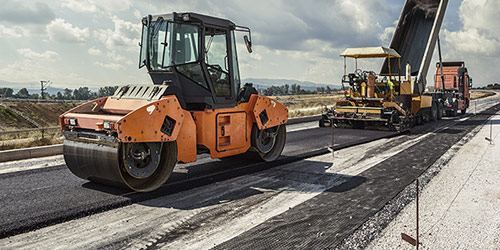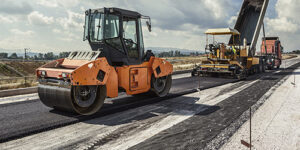Concrete Contractors Colorado Springs is a cost-effective, reliable paving solution that’s as versatile as durable. It is the best choice for your driveway.
Concrete mixes are built with a specific amount of compressive strength in pounds-per-square-inch (psi). The ideal concrete for driveways is designed to withstand heavy loads.
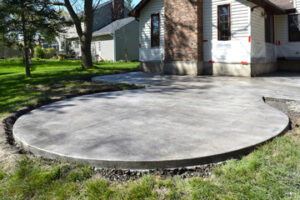
Concrete can last up to 50 years and is less prone to cracking and breaking down than asphalt. Concrete can also withstand heavier loads than other paving materials, making it an excellent choice for homeowners with heavy trucks or RVs that need to park in their driveway.
In addition to its durability, a concrete driveway is extremely versatile and can be made into any design you have in mind. That allows you to add a unique look to your driveway that will complement the architecture of your home and make it stand out from others in the neighborhood.
Another benefit of having a concrete driveway is that it doesn’t absorb sunlight like dark-colored paving materials. That means your kids, pets, and bare feet can walk on it safely without burning their skin. In winter, concrete also doesn’t get as cold as paved surfaces, making walking in your boots more comfortable.
A concrete driveway is a durable option, but you will still need to take care of it to prevent damage over time. For instance, a common issue with concrete is depressions in the surface that can develop over time. If you notice these, it is important to have them repaired before they become larger and cause damage to your vehicle or the foundation of your home.
Additionally, it would be best to always watch for any areas of your concrete that look uneven or sinking. These can be caused by rodents, such as mice and chipmunks, who burrow under the slabs to create tunnels and voids. That can weaken the foundation and lead to the sinking and cracking of the concrete. Taking steps to stop rodents from entering your home and enlisting repair services when you see voids will help to prevent these issues.
While concrete can be quite expensive compared to other paving materials, it is a sustainable alternative to nonrenewable petroleum supplies used for asphalt pavements. That is because concrete uses naturally occurring materials such as water, rock, sand, and cement. Plus, you can ask your ready-mix supplier to use waste and recycled materials in the concrete mix to reduce overall costs. For example, fly ash and ground blast furnace slag are great concrete substitutes that are highly durable and environmentally friendly.
Concrete is the most versatile and strongest construction material in the world. It can build foundations, sidewalks, patios, and walls. It can be poured into many shapes and is fairly inexpensive to construct. It will last for a long time if maintained properly, including annual sealing against damage from oil and other fluids. A well-constructed concrete driveway will last decades.
Concrete can withstand almost any load. It is strong enough to support cars and trucks; even rockets are launched off concrete pads. The key to concrete strength is using the right mix and thickness. For driveways, using a concrete mix with a compressive strength of at least 3500 psi is best. Concrete for driveways is typically poured 5-6 inches thick over a properly prepared base. That includes a layer of coarse gravel or earth and a layer of dense, compacted clay.
A standard concrete mix combines sand, cement, and aggregate (like stone). Different ingredients are added in various ratios to create the strength required for each application. For example, adding more sand produces stronger concrete that is harder to work with, while adding more cement makes it lighter and easier to handle. Concrete mix for driveways is also often formulated with air entrainment to create bubbles in the concrete during the mixing process. That increases the concrete’s ability to resist damage from freeze and thaw cycles and deicing chemicals.
In addition to the standard concrete, specialty mixes are available for various applications. For example, slate-stamped concrete has been created to imitate the look of slate without the high price or brittleness. Stenciled concrete is another option that can be used to create patterns in the concrete that resemble the designs of brick, stone, or other materials.
Other unique concrete applications include colored concrete and decorative finishes. These options allow homeowners to customize their concrete driveways to complement their homes and preferences. Decorative finishing touches include stencils, stamping, color etching, and engraving. In addition, stains can be applied to the concrete during the mixing process to create permanent markings that are not affected by weather or vehicle traffic.
A concrete driveway can look as sleek and simple as you want, but it also lends itself to various design choices. With creativity, you can add curb appeal to make your home stand out in the neighborhood.
Poured concrete is still popular for a smooth, durable, low-cost driveway. It can be used independently or combined with other materials, such as pavers, to achieve a unique look that complements your landscape and home.
Concrete can be stained or colored to enhance the visual appeal of your driveway. A professional installer can tint the concrete in situ for a consistent, nuanced finish. Choose from various colors, from light pearls and whites to chocolate brown or blue-grey. These colors are more subtle than the bright, striped pavers in many driveways and will blend well with most home designs.
A properly installed concrete driveway can withstand heavy loads, including those from dump trucks or RVs. It can also last longer than most other types of material, such as asphalt. However, it is important to ensure your soil is suitable for a concrete driveway. The surface will crack and disintegrate over time if it is too soft.
Concrete is less likely to shift or crack over time than other types of paving. It forms a solid, dense structure that resists movement better than loose gravel or sand. It is also able to withstand freezing temperatures without shifting or cracking.
A concrete driveway will look great for years, and it’s an excellent investment that will increase your property value. Homes with paved driveways tend to sell faster than those that don’t.
A poured concrete driveway lasts 30 or more years with very little maintenance. In contrast, a paver driveway requires regular maintenance, such as weeding and resealing every few years, to keep it looking good. Additionally, a paver driveway can be difficult to shovel, and it can cause tripping hazards when the stones become loose.
Concrete is one of the most durable materials available. It is also fairly cheap and easy to work with. Generally, it’s just a mix of sand, cement, and aggregate (like stone). Adding different amounts of each ingredient alters the strength of the concrete.
A standard concrete mix is fine for most residential driveways. However, if your driveway is located in an area that experiences freeze-thaw cycles, consider a high-performance concrete mix. This type of concrete has an additive that causes air pockets to develop in the wet concrete. During a freeze-thaw cycle, these air bubbles expand and release the pressure that would normally build up in the concrete. That greatly reduces the risk of damage to the concrete.
Concerning maintenance, concrete is a good choice for driveways because it’s relatively low maintenance. It’s important to use the right concrete mix for your climate and ensure the concrete is properly poured and cured. That will help it resist cracking and other damage over time.
Weeds and grass will eventually grow around your driveway, so regular weeding is required. Using a chemical-based weed killer is a good idea to keep them at bay. Rock salt and deicing chemicals can also be hard on concrete, so avoid using them if possible.
Concrete is also very hard and compact, which helps prevent it from forming holes over time. You may see occasional cracks in the surface of a concrete driveway, but they are usually not a cause for concern and can be easily fixed with concrete leveling.
Concrete is also an excellent material for creating a unique and attractive driveway. Today’s concrete is available in a wide variety of decorative finishes and colors. It can be imprinted with designs, textures, or patterns that will add a new dimension to your landscaping plans and increase property value at a very reasonable cost. You can even design your concrete driveway to look like brick, slate, or other popular paving materials. Concrete is also versatile enough to be sculpted into innovative shapes and forms that aren’t possible with other paving materials.


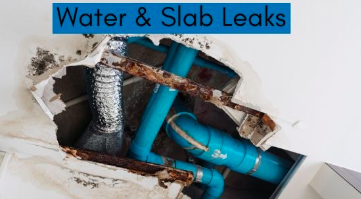
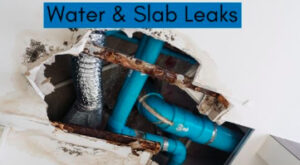 Slab leaks happen when water lines corrode, crack, or rupture. They can lead to water infiltration that damages the foundation of your home. The first sign of a slab leak is often an unexplained surge in your water bill.
Slab leaks happen when water lines corrode, crack, or rupture. They can lead to water infiltration that damages the foundation of your home. The first sign of a slab leak is often an unexplained surge in your water bill.